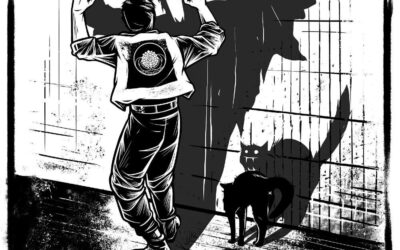Key Points:
- Psychotherapy is facing an identity and purpose crisis in the era of market-driven healthcare, as depth, nuance, and the therapeutic relationship are being displaced by cost containment, standardization, and mass-reproducibility.
- This crisis stems from a shift in notions of the self and therapy’s aims, shaped by the rise of neoliberal capitalism and consumerism. The “empty self” plagued by inner lack pursues fulfillment through goods, experiences, and attainments.
- Mainstream psychotherapy largely reinforces this alienated, individualistic self-construction. Cognitive-behavioral therapy (CBT) and manualized treatments focus narrowly on “maladaptive” thoughts and behaviors without examining broader contexts.
- The biomedical model’s hegemony views psychological struggles as brain diseases treated pharmacologically, individualizing and medicalizing distress despite research linking it to life pains like poverty, unemployment, trauma, and isolation.
- Digital technologies further the trend towards disembodied, technocratic mental healthcare, risking reducing therapy to scripted interactions and gamified inputs.
- The neoliberal transformation of psychotherapy in the 1970s, examined by sociologist Samuel Binkley, aligned the dominant therapeutic model centered on personal growth and self-actualization with a neoliberal agenda that cast individuals as enterprising consumers responsible for their own fulfillment.
- To reclaim its emancipatory potential, psychotherapy must reimagine its understanding of the self and psychological distress, moving beyond an intrapsychic focus to grapple with the social, political, and existential contexts of suffering.
- This transformation requires fostering critical consciousness, relational vitality, collective empowerment, and aligning with movements for social justice and systemic change.
- The struggle to reimagine therapy is inseparable from the struggle to build a more just, caring, and sustainable world. A psychotherapy of liberation is urgently needed to address the mental health toll of late capitalism.
- The neoliberal restructuring of healthcare and academia marginalized psychotherapy’s humanistic foundations, subordinating mental health services to market logic and elevating reductive, manualized approaches.
- Psychotherapy’s capitulation to market forces reflects a broader disenchantment of politics by economics, reducing the complexities of mental distress to quantifiable, medicalized entities and eviscerating human subjectivity.
- While intuitive and phenomenological approaches are celebrated in other scientific fields like linguistics and physics, they are often dismissed in mainstream psychology, reflecting an aversion to knowledge that resists quantification.
- Psychotherapy should expand its understanding of meaningful evidence, making room for intuitive insights, subjective experiences, and phenomenological explorations alongside quantitative data.
- Academic psychology’s hostility towards Jungian concepts, even as neurology revalidates them under different names, reflects hypocrisy and a commitment to familiar but ineffective models.
- To reclaim its relevance, psychotherapy must reconnect with its philosophical and anthropological roots, reintegrating broader frameworks to develop a more holistic understanding of mental health beyond symptom management.
How Market Forces are Shaping the Practice and Future of Psychotherapy
The field of psychotherapy faces an identity and purpose crisis in the era of market-driven healthcare. As managed care, pharmaceutical dominance, and the biomedical model reshape mental health treatment, psychotherapy’s traditional foundations – depth, nuance, the therapeutic relationship – are being displaced by the imperatives of cost containment, standardization, and mass-reproducibility. This shift reflects the ascendancy of a neoliberal cultural ideology reducing the complexity of human suffering to decontextualized symptoms to be efficiently eliminated, not a meaningful experience to be explored and transformed.
In “Constructing the Self, Constructing America,” cultural historian Philip Cushman argues this psychotherapy crisis stems from a shift in notions of the self and therapy’s aims. Individual identity and psychological health are shaped by cultural, economic and political forces, not universal. The rise of neoliberal capitalism and consumerism birthed the “empty self” plagued by inner lack, pursuing fulfillment through goods, experiences, and attainments – insecure, inadequate, fearing to fall behind in life’s competitive race.
Mainstream psychotherapy largely reinforces this alienated, individualistic self-construction. Cognitive-behavioral therapy (CBT) and manualized treatment focus narrowly on “maladaptive” thoughts and behaviors without examining social, political, existential contexts. Packaging therapy into standardized modules strips away relational essence for managed care’s needs. Therapists become technicians reinforcing a decontextualized view locating problems solely in the individual, overlooking unjust social conditions shaping lives and psyches.
Central is the biomedical model’s hegemony, viewing psychological struggles as brain diseases treated pharmacologically – a seductive but illusory promise. Antidepressant use has massively grown despite efficacy and safety doubts, driven by pharma marketing casting everyday distress as a medical condition, not deeper malaise. The model individualizes and medicalizes distress despite research linking depression to life pains like poverty, unemployment, trauma, isolation.
Digital technologies further the trend towards disembodied, technocratic mental healthcare. Online therapy platforms and apps expand access but risk reducing therapy to scripted interactions and gamified inputs, not genuine, embodied attunement and meaning-making.
In his book “Getting Loose: Lifestyle Consumption in the 1970s,” sociologist Samuel Binkley examines how the social transformations of the 1970s, driven by the rise of neoliberalism and consumer culture, profoundly reshaped notions of selfhood and the goals of therapeutic practice. Binkley argues that the dominant therapeutic model that emerged during this period – one centered on the pursuit of personal growth, self-actualization, and the “loosening” of the self from traditional constraints – unwittingly aligned itself with a neoliberal agenda that cast individuals as enterprising consumers responsible for their own fulfillment and well-being.
While ostensibly liberatory, this “getting loose” ethos, Binkley contends, ultimately reinforced the atomization and alienation of the self under late capitalism. By locating the source of and solution to psychological distress solely within the individual psyche, it obscured the broader social, economic, and political forces shaping mental health. In doing so, it inadvertently contributed to the very conditions of “getting loose” – the pervasive sense of being unmoored, fragmented, and adrift – that it sought to alleviate.
Binkley’s analysis offers a powerful lens for understanding the current crisis of psychotherapy. It suggests that the field’s increasing embrace of decontextualized, technocratic approaches to treatment is not merely a capitulation to market pressures, but a logical extension of a therapeutic paradigm that has long been complicit with the individualizing logic of neoliberalism. If psychotherapy is to reclaim its emancipatory potential, it must fundamentally reimagine its understanding of the self and the nature of psychological distress.
This reimagining requires a move beyond the intrapsychic focus of traditional therapy to one that grapples with the social, political, and existential contexts of suffering. It means working to foster critical consciousness, relational vitality, and collective empowerment – helping individuals to deconstruct the oppressive narratives and power structures that constrain their lives, and to tap into alternative sources of identity, belonging, and purpose.
Such a transformation is not just a matter of therapeutic technique, but of political and ethical commitment. It demands that therapists reimagine their work not merely as a means of alleviating individual symptoms, but as a form of social and political action aimed at nurturing personal and collective liberation. This means cultivating spaces of collective healing and visioning, and aligning ourselves with the movements for social justice and systemic change.
At stake is nothing less than the survival of psychotherapy as a healing art. If current trends persist, our field will devolve into a caricature of itself, a hollow simulacrum of the ‘branded, efficient, quality-controlled’ treatment packages hocked by managed care. Therapists will be relegated to the role of glorified skills coaches and symptom-suppression specialists, while the deep psychic wounds and social pathologies underlying the epidemic of mental distress will metastasize unchecked. The choice before us is stark: Do we collude with a system that offers only the veneer of care while perpetuating the conditions of collective madness? Or do we commit ourselves anew to the still-revolutionary praxis of tending psyche, dialoguing with the unconscious, and ‘giving a soul to psychiatry’ (Hillman, 1992)?
Ultimately, the struggle to reimagine therapy is inseparable from the struggle to build a more just, caring, and sustainable world. As the mental health toll of late capitalism continues to mount, the need for a psychotherapy of liberation has never been more urgent. By rising to this challenge, we open up new possibilities for resilience, regeneration, and revolutionary love – and begin to create the world we long for, even as we heal the world we have.
The Neoliberal Transformation of Psychotherapy
The shift in psychotherapy’s identity and purpose can be traced to the broader socioeconomic transformations of the late 20th century, particularly the rise of neoliberalism under the Reagan and Thatcher administrations. Neoliberal ideology, with its emphasis on privatization, deregulation, and the supremacy of market forces, profoundly reshaped the landscapes of healthcare and academia in which psychotherapy is embedded.
As healthcare became increasingly privatized and profit-driven, the provision of mental health services was subordinated to the logic of the market. The ascendancy of managed care organizations and private insurance companies created powerful new stakeholders who saw psychotherapy not as a healing art, but as a commodity to be standardized, packaged, and sold. Under this market-driven system, the value of therapy was reduced to its cost-effectiveness and its capacity to produce swift, measurable outcomes. Depth, nuance, and the exploration of meaning – the traditional heart of the therapeutic enterprise – were casualties of this shift.
Concurrent with these changes in healthcare, the neoliberal restructuring of academia further marginalized psychotherapy’s humanistic foundations. As universities increasingly embraced a corporate model, they became beholden to the same market imperatives of efficiency, standardization, and quantification. In this milieu, the kind of research and training that could sustain a rich, multi-faceted understanding of the therapeutic process was devalued in favor of reductive, manualized approaches more amenable to the demands of the market.
This academic climate elevated a narrow caste of specialists – often far removed from clinical practice – who were empowered to define the parameters of legitimate knowledge and practice in the field. Beholden to the interests of managed care, the pharmaceutical industry, and the biomedical establishment, these “experts” played a key role in cementing the hegemony of the medical model and sidelining alternative therapeutic paradigms. Psychotherapy training increasingly reflected these distorted priorities, producing generations of therapists versed in the language of symptom management and behavioral intervention, but often lacking a deeper understanding of the human condition.
As researcher William Davies has argued, this neoliberal transformation of psychotherapy reflects a broader “disenchantment of politics by economics.” By reducing the complexities of mental distress to quantifiable, medicalized entities, the field has become complicit in the evisceration of human subjectivity under late capitalism. In place of a situated, meaning-making self, we are left with the hollow figure of “homo economicus” – a rational, self-interested actor shorn of deeper psychological and spiritual moorings.
Tragically, the public discourse around mental health has largely been corralled into this narrow, market-friendly mold. Discussions of “chemical imbalances,” “evidence-based treatments,” and “quick fixes” abound, while more searching explorations of the psychospiritual malaise of our times are relegated to the margins. The result is a flattened, impoverished understanding of both the nature of psychological distress and the possibilities of therapeutic transformation.
Psychotherapy’s capitulation to market forces is thus not merely an abdication of its healing potential, but a betrayal of its emancipatory promise. By uncritically aligning itself with the dominant ideology of our age, the field has become an instrument of social control rather than a catalyst for individual and collective liberation. If therapy is to reclaim its soul, it must begin by confronting this history and imagining alternative futures beyond the neoliberal horizon.
Intuition in Other Scientific Fields
Noam Chomsky’s work in linguistics and cognitive science has long been accepted as scientific canon, despite its heavy reliance on intuition and introspective phenomenology. His theories of deep grammatical structures and an innate language acquisition device in the human mind emerged not from controlled experiments or quantitative data analysis, but from a deep, intuitive engagement with the patterns of human language and thought.
Yet while Chomsky’s ideas are celebrated for their revolutionary implications, similar approaches in the field of psychotherapy are often met with skepticism or outright dismissal. The work of Carl Jung, for instance, which posits the existence of a collective unconscious and universal archetypes shaping human experience, is often relegated to the realm of pseudoscience or mysticism by the mainstream psychological establishment.
This double standard reflects a deep-seated insecurity within academic and medical psychology about engaging with phenomena that resist easy quantification or empirical verification. There is a pervasive fear of straying too far from the narrow confines of what can be measured, controlled, and reduced to standardized formulas.
Ironically, this insecurity persists even as cutting-edge research in fields like neuroscience and cognitive psychology increasingly validates many of Jung’s once-marginalized ideas. Concepts like “implicit memory,” “event-related potentials,” and “predictive processing” bear striking resemblances to Jungian notions of the unconscious mind, while advanced brain imaging techniques confirm the neurological basis of personality frameworks like the Myers-Briggs Type Indicator (MBTI). Yet rather than acknowledging the pioneering nature of Jung’s insights, the psychological establishment often repackages these ideas in more palatable, “scientific” terminology.
This aversion to intuition and subjective experience is hardly unique to psychotherapy. Across the sciences, there is a widespread mistrust of knowledge that cannot be reduced to quantifiable data points and mathematical models. However, some of the most transformative scientific advances have emerged from precisely this kind of intuitive, imaginative thinking.
Albert Einstein’s theory of relativity, for instance, emerged not from empirical data, but from a thought experiment – an act of pure imagination. The physicist David Bohm’s innovative theories about the implicate order of the universe were rooted in a profoundly intuitive understanding of reality. And the mathematician Srinivasa Ramanujan attributed his brilliant insights to visions from a Hindu goddess – a claim that might be dismissed as delusional in a clinical context, but is celebrated as an expression of his unique genius.
Psychotherapy should not abandon empirical rigor or the scientific method, but rather expand its understanding of what constitutes meaningful evidence. By making room for intuitive insights, subjective experiences, and phenomenological explorations alongside quantitative data and experimental findings, the field can develop a richer, more multidimensional understanding of the human mind and the process of psychological transformation.
This expansive, integrative approach is necessary for psychotherapy to rise to the challenges of our time – the crisis of meaning and authenticity in an increasingly fragmented world, the epidemic of mental illness and addiction, and the collective traumas of social oppression and ecological devastation. Only by honoring the full spectrum of human knowledge and experience can we hope to catalyze the kind of deep, lasting change that our world so desperately needs.
It is a particular vexation of mine that academic psychology is so hostile to the vague but perennial ideas about the unconscious that Jung and others posited. Now neurology is re-validating Jungian concepts under different names like “implicit memory”, “event-related potentials”, and “secondary and tertiary consciousness”, while qEEG brain maps are validating the underlying assumptions of the Jungian-derived MBTI. Yet the academy still cannot admit they were wrong and Jung was right, even as they publish papers in “premiere” academic journals like The Lancet that denounce Jung as pseudoscience while repurposing his ideas. This is another example of hypocrisy.
Academia seems to believe its publications have innate efficacy and ethics as long as the proper rituals of psychological research are enacted. If you cite your sources, review recent literature in your echo chamber, disclose financial interests, and profess ignorance of your profession’s history and the unethical systems funding your existence, then you are doing research correctly. But the systems paying for your work and existence are not mere “financial interests” – that’s just business! This is considered perfectly rational, as long as one doesn’t think too deeply about it.
Claiming “I don’t get into that stuff” or “I do academic/medical psychology” has become a way to defend oneself from not having a basic understanding of how humans and cultures are traumatized or motivated, even while running universities and hospitals. The attitude seems to be: “Let’s just keep handing out CBT and drugs for another 50 years, ‘rationally’ and ‘evidence-based’ of course, and see how much worse things get in mental health.”
No wonder outcomes and the replication crisis worsen every year, even as healthcare is ostensibly guided by rational, empirical forces. Academia has created a model of reality called science, applied so single-mindedly that they no longer care if the outcomes mirror those of the real world science was meant to serve! Academic and medical psychology have created a copy of the world they interact with, pretending it reflects reality while it fundamentally cannot, due to the material incentives driving it. We’ve created a scientific model meant to reflect reality, but mistake it for reality itself. We reach in vain to move objects in the mirror instead of putting the mirror away and engaging with what’s actually there. How do we not see that hyper-rationalism is just another form of religion, even as we tried to replace religion with it?
This conception of psychology is not only an imaginary model, but actively at war with the real, cutting us off from truly logical, evidence-based pathways we could pursue. It wars with objective reality because both demand our total allegiance. We must choose entirely between the object and its reflection, god and idol. We must decide if we want the uncertainty of real science or the imaginary sandbox we pretend is science. Adherence to this simulacrum in search of effective trauma and mental illness treatments has itself become a cultural trauma response – an addiction to the familiar and broken over the effective and frightening.
This is no different than a cult or conspiracy theory. A major pillar of our civilization would rather perpetuate what is familiar and broken than dare to change. Such methodological fundamentalism is indistinguishable from religious devotion. We have a group so committed to their notion of the rational that they’ve decided reason and empiricism should no longer be beholden to reality. How is our approach to clinical psychology research any different than a belief in magic?
The deflections of those controlling mainstream psychology should sound familiar – they are the same ego defenses we’d identify in a traumatized therapy patient. Academic psychology’s reasoning is starting to resemble what it would diagnose as a personality disorder:
“It’s not me doing it wrong, even though I’m not getting the results I want! It’s the world that’s wrong by not enabling my preferred approach. Effective practitioners must be cheating or deluded. Those who do it like me are right, though none of us get good results. We’d better keep doing it our way, but harder.”
As noted in my Healing the Modern Soul series, I believe that since part of psychology’s role is to functionally define the “self”, clinical psychology is inherently political. Material forces will always seek to define and control what psychology can be. Most healthy definitions of self threaten baseless tradition, hierarchy, fascism, capital hoarding, and the co-opting of culture to manipulate consumption.
Our culture is sick, and thus resistant to a psychology that would challenge its unhealthy games with a coherent sense of self. Like any patient, our culture wants to deflect and fears the first step of healing: admitting you have a problem. That sickness strokes the right egos and lines the right pockets, a societal-scale version of Berne’s interpersonal games. Our current psychological paradigm requires a hierarchy with one group playing sick, emotional child to the other’s hyper-rational, all-knowing parent. The relationship is inherently transactional, and we need to make it more authentic and collaborative.
I have argued before that one of the key challenges facing psychotherapy today is the fragmentation and complexity of modern identity. In a globalized, digitally-connected world, we are constantly navigating a myriad of roles, relationships, and cultural contexts, each with its own set of expectations and demands.
Even though most people would agree that our system is bad the fragmentary nature of the postmodern has left us looking through a kaleidoscope. We are unable to agree on hero, villain, cause, solution, framework or label. This fragmentation leads to a sense of disconnection and confusion, a feeling that we are not living an authentic or integrated life. The task of psychotherapy, in this context, is to help individuals develop a more coherent and resilient sense of self, one that can withstand the centrifugal forces of modern existence. Psychotherapy can become a new mirror to cancel out the confusing reflections of the kaleidoscope. We need a new better functioning understanding of self in psychology for society to see the self and for the self to see clearly our society.
The Fragmentation of Psychotherapy: Reconnecting with Philosophy and Anthropology
To reclaim its soul and relevance, psychotherapy must reconnect with its philosophical and anthropological roots. These disciplines offer essential perspectives on the nature of human existence, the formation of meaning and identity, and the cultural contexts that shape our psychological realities. By reintegrating these broader frameworks, we can develop a more holistic and nuanced understanding of mental health that goes beyond the narrow confines of symptom management.
Many of the most influential figures in the history of psychotherapy have argued for this more integrative approach. Irvin Yalom, for instance, has long championed an existential orientation to therapy that grapples with the fundamental questions of human existence – death, freedom, isolation, and meaninglessness. Erik Erikson’s psychosocial theory of development explicitly situated psychological growth within a broader cultural and historical context. Peter Levine’s work on trauma healing draws heavily from anthropological insights into the body’s innate capacity for self-regulation and resilience.
Carl Jung, perhaps more than any other figure, insisted on the inseparability of psychology from broader humanistic inquiry. His concepts of the collective unconscious and archetypes were rooted in a deep engagement with mythology, anthropology, and comparative religion. Jung understood that individual psychological struggles often reflect larger cultural and spiritual crises, and that healing must address both personal and collective dimensions of experience.
Despite the profound insights offered by these thinkers, mainstream psychotherapy has largely ignored their calls for a more integrative approach. The field’s increasing alignment with the medical model and its pursuit of “evidence-based” treatments has led to a narrow focus on standardized interventions that can be easily quantified and replicated. While this approach has its merits, it often comes at the cost of deeper engagement with the philosophical and cultural dimensions of psychological experience.
The relationship between psychology, philosophy, and anthropology is not merely a matter of academic interest – it is essential to the practice of effective and meaningful therapy. Philosophy provides the conceptual tools to grapple with questions of meaning, ethics, and the nature of consciousness that are often at the heart of psychological distress. Anthropology offers crucial insights into the cultural shaping of identity, the diversity of human experience, and the social contexts that give rise to mental health challenges.
By reconnecting with these disciplines, psychotherapy can develop a more nuanced and culturally informed approach to healing. This might involve:
- Incorporating philosophical inquiry into the therapeutic process, helping clients explore questions of meaning, purpose, and values.
- Drawing on anthropological insights to understand how cultural norms and social structures shape psychological experience and expressions of distress.
- Developing more holistic models of mental health that account for the interconnectedness of mind, body, culture, and environment.
- Fostering dialogue between psychotherapists, philosophers, and anthropologists to enrich our understanding of human experience and suffering.
- Training therapists in a broader range of humanistic disciplines to cultivate a more integrative and culturally sensitive approach to healing.
The reintegration of philosophy and anthropology into psychotherapy is not merely an academic exercise – it is essential for addressing the complex psychological challenges of our time. As we grapple with global crises like climate change, political polarization, and the erosion of traditional sources of meaning, we need a psychology that can engage with the big questions of human existence and the cultural forces shaping our collective psyche.
By reclaiming its connections to philosophy and anthropology, psychotherapy can move beyond its current crisis and reclaim its role as a vital force for individual and collective healing. In doing so, it can offer not just symptom relief, but a deeper engagement with the fundamental questions of what it means to be human in an increasingly complex and interconnected world.
Read More Depth Psychology Articles:
Taproot Therapy Collective Podcast
Jungian Topics
How Psychotherapy Lost its Way
Therapy, Mysticism and Spirituality?
What Can the Origins of Religion Teach us about Psychology
The Major Influences from Philosophy and Religions on Carl Jung
How to Understand Carl Jung
How to Use Jungian Psychology for Screenwriting and Writing Fiction
How the Shadow Shows up in Dreams
Using Jungian Thought to Combat Addiction
Jungian Exercises from Greek Myth
Jungian Shadow Work Meditation
Free Shadow Work Group Exercise
Post Post-Moderninsm and Post Secular Sacred
References:
Binkley, S. (2007). Getting loose: Lifestyle consumption in the 1970s. Duke University Press.
Cipriani, A., Furukawa, T. A., Salanti, G., Chaimani, A., Atkinson, L. Z., Ogawa, Y., … & Geddes, J. R. (2018). Comparative efficacy and acceptability of 21 antidepressant drugs for the acute treatment of adults with major depressive disorder: a systematic review and network meta-analysis. The Lancet, 391(10128), 1357-1366.
Cushman, P. (1995). Constructing the self, constructing America: A cultural history of psychotherapy. Boston: Addison-Wesley.
Davies, W. (2014). The limits of neoliberalism: Authority, sovereignty and the logic of competition. Sage.
Fisher, M. (2009). Capitalist realism: Is there no alternative?. John Hunt Publishing.
Hillman, J. (1992). The thought of the heart and the soul of the world. Spring Publications.
Kirsch, I. (2010). The emperor’s new drugs: Exploding the antidepressant myth. Basic Books.
Layton, L. (2009). Who’s responsible? Our mutual implication in each other’s suffering. Psychoanalytic Dialogues, 19(2), 105-120.
Penny, L. (2015). Self-care isn’t enough. We need community care to thrive. Open Democracy. Retrieved from https://www.opendemocracy.net/en/transformation/selfcare-isnt-enough-we-need-community-care-to-thrive/
Rose, N. (2019). Our psychiatric future: The politics of mental health. John Wiley & Sons.
Samuels, A. (2014). Politics on the couch: Citizenship and the internal life. Karnac Books.
Shedler, J. (2018). Where is the evidence for “evidence-based” therapy?. Psychiatric Clinics, 41(2), 319-329.
Sugarman, J. (2015). Neoliberalism and psychological ethics. Journal of Theoretical and Philosophical Psychology, 35(2), 103.
Watkins, M., & Shulman, H. (2008). Toward psychologies of liberation. Palgrave Macmillan.
Whitaker, R. (2010). Anatomy of an epidemic: Magic bullets, psychiatric drugs, and the astonishing rise of mental illness in America. Broadway Books.
Winerman, L. (2017). By the numbers: Antidepressant use on the rise. Monitor on Psychology, 48(10), 120.
Suggested further reading:
Bordo, S. (2004). Unbearable weight: Feminism, Western culture, and the body. University of California Press.
Cacioppo, J. T., & Patrick, W. (2008). Loneliness: Human nature and the need for social connection. WW Norton & Company.
Deleuze, G., & Guattari, F. (1988). A thousand plateaus: Capitalism and schizophrenia. Bloomsbury Publishing.
Fanon, F. (2007). The wretched of the earth. Grove/Atlantic, Inc.
Foucault, M. (1988). Madness and civilization: A history of insanity in the age of reason. Vintage.
Freire, P. (1970). Pedagogy of the oppressed. Bloomsbury publishing USA.
Fromm, E. (1955). The sane society. Routledge.
Hari, J. (2018). Lost connections: Uncovering the real causes of depression–and the unexpected solutions. Bloomsbury Publishing USA.
Herman, J. L. (2015). Trauma and recovery: The aftermath of violence–from domestic abuse to political terror. Hachette UK.
hooks, b. (2014). Teaching to transgress. Routledge.
Illouz, E. (2008). Saving the modern soul: Therapy, emotions, and the culture of self-help. Univ of California Press.
Laing, R. D. (1960). The divided self: An existential study in sanity and madness. Penguin UK.
Martín-Baró, I. (1996). Writings for a liberation psychology. Harvard University Press.
McKenzie, K., & Bhui, K. (Eds.). (2020). Institutional racism in psychiatry and clinical psychology: Race matters in mental health. Springer Nature.
Metzl, J. M. (2010). The protest psychosis: How schizophrenia became a black disease. Beacon Press.
Orr, J. (2006). Panic diaries: A genealogy of panic disorder. Duke University Press.
Scaer, R. (2014). The body bears the burden: Trauma, dissociation, and disease. Routledge.
Szasz, T. S. (1997). The manufacture of madness: A comparative study of the inquisition and the mental health movement. Syracuse University Press.
Taylor, C. (2012). Sources of the self: The making of the modern identity. Cambridge University Press.
Teo, T. (2015). Critical psychology: A geography of intellectual engagement and resistance. American Psychologist, 70(3), 243.
Tolleson, J. (2011). Saving the world one patient at a time: Psychoanalysis and social critique. Psychotherapy and Politics International, 9(2), 160-170.



























0 Comments